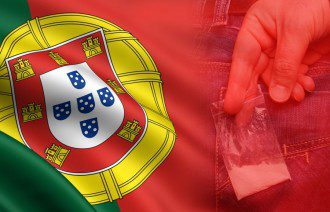

| Online: | |
| Visits: | |
| Stories: |

| Story Views | |
| Now: | |
| Last Hour: | |
| Last 24 Hours: | |
| Total: | |
The Unexpected Effect of Decriminalizing Drugs in Portugal, Fifteen Years Later
Contributing Writer for Wake Up World
Whenever the idea of decriminalizing illicit drugs in the U.S. is raised, there are always those who rant that such a measure would be the downfall of society, drug use would sky rocket and our moral fabric as a country would be irreparably torn. But these claims paint a very different picture from what actually happens in countries where the possession and use of small quantities of drugs — like weed, cocaine and heroin — isn’t a felony or even considered a criminal offense. Instead, drug use is considered a public health issue, not a criminal one.
Portugal is an excellent example of what transpires when drugs are decriminalized. In the face of dire predictions made by drug-policy makers, Portugal took the path less travelled — with surprising results.
Unexpected Outcomes
For years, Portugal had waged a fierce war against drugs. Then, in 2001, the country decided to radically change its position. But there are always been plenty of naysayers who feel decriminalization is a big mistake.
“If you make any attractive commodity available at lower cost, you will have more users. Anything like legalizing drugs is preposterous — no less ridiculous than trying to lock up every offender,” said former Office of National Drug Control Policy deputy director Thomas McLellan.
And Joseph Califano, founder of the Center for Addiction and Substance Abuse at Columbia University, warned that once drugs were decriminalized, we would see an “increase [in] illegal drug availability and use among our children.”
Widespread hard drug use, which stemmed from Portugal’s revolution in 1974, had reached a crisis point by 1999, where nearly 1% of the population was addicted to heroin, and drug-related AIDS deaths were the highest in the European Union. This despite severe punitive punishments and harsh conservative cultural viewpoints condemning drug use. Sentences were increased, more money was spent on investigations and prosecutions. To no avail. The war on drugs simply wasn’t working. Matters only became worse.
Further reading from Carolanne Wright:
- Monsanto Charged with Crimes Against Nature and Humanity – Set to Stand Trial in 2016
- Dr Sebi: The Man Who Cures Aids, Cancer, Diabetes and More
- Politicians in California May Soon be Forced to Wear Corporate Sponsor Patches Like Nascar Drivers
- Plastic-Eating Mushroom Discovered in the Amazon Rainforest — A Solution for Our Trash Saturated World?
- Big Pharma and Organized Crime — They are More Similar Than You May Think
- Over 100 Scientific Studies Agree: Cannabis Annihilates Cancer
- Emotional Energetic Healing: The Future of Medicine is Here
- Why Every Parent Should Consider Unschooling
- The Greenhouse of the Future: Grow Your Own Food Year-Round With This Revolutionary System
- First U.S. City Produces More Electricity Than It Uses — With 100% Renewable Technology
- Autistic Boy with Higher IQ Than Einstein Discovers Gift After Removal from State-Run Therapy
-
Follow Wake Up World On…
[FACEBOOK]: http://www.facebook.com/joinwakeupworld (An interactive community of over 3,000,000)
[PINTEREST]: http://pinterest.com/wakeupword/
[TWITTER]: http://twitter.com/joinwakeupworld
[YOUTUBE]: http://www.youtube.com/joinwakeupworld
[GOOGLE PLUS]: https://plus.google.com/112452105795129310867/posts
[WEBSITE]: http://wakeup-world.com



